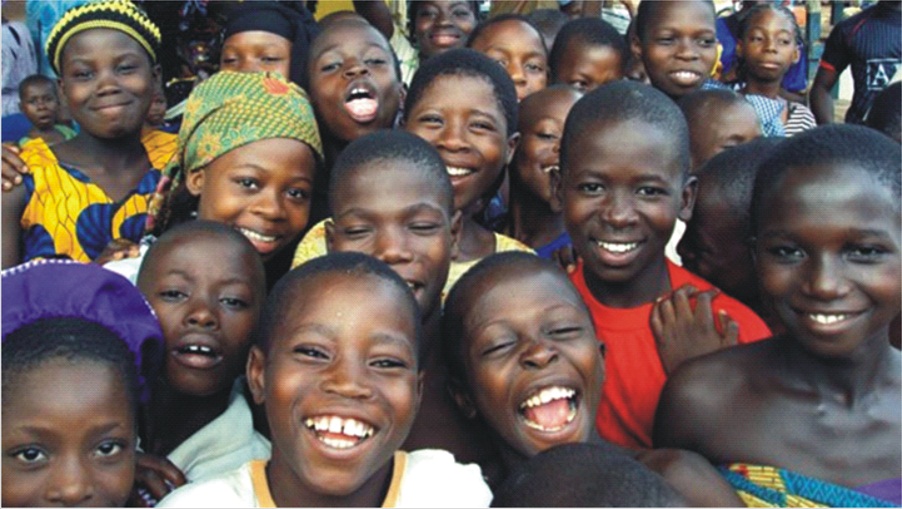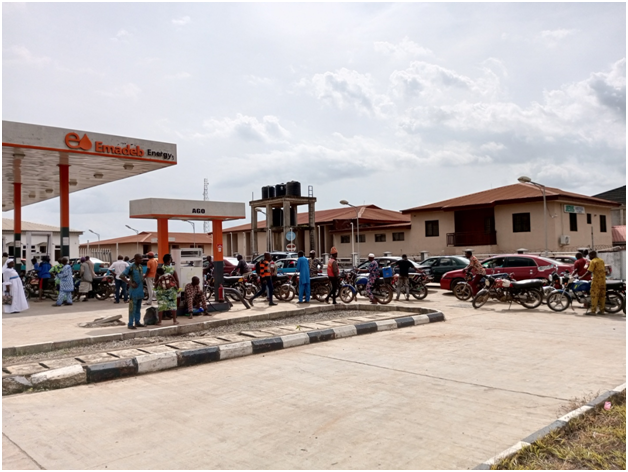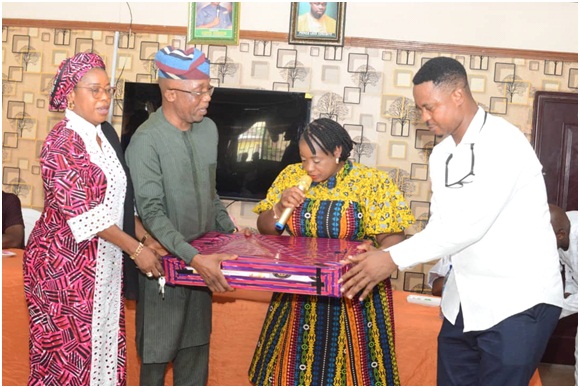‘Children’s rights more violated in Nigeria’

By Babatunde Ayedoju
|
The National Human Rights Commission (NHRC) in September, last year said that it received 1,701,519 complaints about rights violations through the protection departments of its headquarters and state offices. According to the Commission, this was higher than the 1,287,280 complaints received in the previous year and the highest since its establishment in 1995.
The disclosure was made in the Commission’s statutory report which was presented at the Annual General Conference of the Nigerian Bar Association in Lagos and made available to the press by the NHRC Executive Secretary, Anthony Ojukwu.
The NHRC explained that the reduction in the new infection rate of the coronavirus pandemic which led to the relaxation of the lockdown and movement restrictions, enabled more people to reach the Commission with their complaints.
It also cited the increased use of social media, insecurity in the country and increasing awareness of human rights and knowledge of the avenues to claim those rights as other factors that contributed to the surge.
Issues that the Commission focused on mostly in 2021 were SGBV (rape and domestic violence); women and gender rights (child custody, denial of access to children); child rights (right to survival and development, child abandonment); judiciary, rule of law and access to justice; quality of life; and freedom from discrimination.
The report said, “Child rights issues topped the list with 367,440 complaints, while women and gender issues followed with 287,240 complaints. These high figures may be attributable to rising poverty and unemployment occasioned by COVID-19 economic fallouts, which have taken a heavy toll on family life and the erosion of family values. The lowest figures were recorded for rights of the aged (1,880) followed at a far distance by Niger Delta and Environment cases (14,360).”
Beyond the statistics given above, there are many reported cases of abuse of children and some other young adults, showing that children’s rights indeed face more violations in Nigeria.
It would be recalled that recently a 10 year old maid, Ifunaya Ede, was said to have been forced by her mistress, Mrs. Esther David, to drink hot water mixed with pepper, after she allegedly broke a plate while doing house chores. The mistress reportedly took her to a chemist for treatment before she was referred to an hospital.
The incident occurred in Abia State and the wife of the State Governor, Mrs. Nkechi Ikpeazu, had to take up the matter, to ensure that the victim was treated and justice served.
Similarly, in June last year, a 21 year old apprentice chemist in Agasha, Benue State, Chizoba Ayogu, was said to have been beaten to a state of coma by his master, Mr Chimezie Eze, who accused him of using N50 airtime on the master’s business line to call another apprentice. The master also accused him of selling a pack of paracetamol for N50 instead of N200.
Reacting, the master, Mr Eze, claimed that the young man assaulted him when he tried to discipline him. He, therefore, had to defend himself.
There was also a celebrated case that involved popular Yoruba actor, Olanrewaju Omiyinka, aka Baba Ijesha, who was jailed of defiling a minor. On April 19, 2021, a viral video clip showed Baba Ijesha sexually assaulting 14-year-old foster daughter of a comedienne, Damilola Adekoya, aka Princess.
Baba Ijesha was later arraigned before an Ikeja Special Offences Court which found him guilty of four out of the six offences he was accused of. Two charges attracted a five year jail term each, while the remaining two offences attracted two years imprisonment each. The popular actor was therefore sentenced to 16 years imprisonment that would run concurrently.
In Ondo State, a mother of four, Mrs. Omoyemi Opeyemi, was arrainged in Akure for inflicting multiple body injuries on her 12 year old house help, Joel Sunday.
The woman, who happened to be a widow, was said to have used a stick and a razor blade to inflict multiple body injuries on the house help whom she accused of stealing meat from the pot. Luckily for the poor boy, he was rescued by a neighbour who reported the matter to the police and took him to the hospital.
Few months ago, the National Agency for the Prohibition of Trafficking in Persons (NAPTIP) Anambra State Command, also arrested a woman who confessed that she beat her house maid to death and hid her corpse in the bush.
The woman had confessed that she beat the girl till she began to convulse and rushed her to an hospital where she later died.
Speaking to The Hope, Dr Salman Adisa from the Guidance and Counseling Unit of Ahmadu Bello University, Zaria, clarified that violation of children’s rights can be in form of child abuse or child labour.
According to the psychologist, child abuse is any act that deprives children of their fundamental rights, while child labour entails making children work beyond their capacity.
Dr Adisa blamed children’s rights violation on many factors, one of which is the fact that the rights of the parents themselves are not duly protected by the government. According to the educational counselor, alongside impunity among the citizens themselves, poverty has helped in no small way to perpetuate violation of the rights of children in Nigeria.
“A lot of parents are no longer able to educate their children, because of the state of the economy and the level of hardship in the country, and that is what makes children prone to a violation of their rights in form of child abuse and child labour,” he posited.
Dr Adisa noted that the solution is for the government to do the right thing by fixing the economy and addressing corruption effectively.
Similarly, Dr Mrs. Kemi Adebola, a sociologist from the Federal University of Technology, Akure (FUTA), noted that Nigerians have a culture that does not believe in children’s rights, and this can be seen in the way many people treat or train children.
She said, “We believe that they are our property and can be treated as such. We don’t see them as government property because the government is also not fulfilling its part.”
While lamenting that children do not know their rights, coupled with the fact that there is a general breakdown of rule of law which affects everybody, Dr Mrs. Adebola also pointed out that even the rights of adults are being trampled upon as well. Unfortunately, it is difficult for such adults to seek redress and get it, which sometimes lead to a transfer of aggression on the next person, and that next person may be a child.
She explained further, “For example, think of parents who have not been paid salaries and the children are asking for money for various reasons. There can be a transfer of aggression in such an instance.”
Talking about the way forward, Dr Mrs. Adebola suggested a re-evaluation of our value system which will come in form of correcting aspects of our culture that are inimical to children’s rights, such as female genital mutilation, child-marriage and child labour.
“Above all, a lot, lies on the government to do the right thing by ensuring that the welfare of the parents are catered for,” she added












